It has been a while since I've posted. No one has complained or apparently even noticed, but I am feeling disoriented by the lack of structure in my life. The ritual of nightly (or in the wee hours of the morning) pounding out what is on my mind has been interrupted by the whip of economic necessity and the slings and arrows of outrageous fortune. Differently put, I have been working and it has kept me from my play.
Now for the correction (or the swinging back of the pendulum), I love a cliché.
The wee hours of the morning. I never recall having used the word "wee" in any other context. "The small hours of the morning" says the same thing. About thirty years ago I heard a jury argument in which the lawyer (one Warren Burnett of Odessa, Texas, now forgotten, but lionized by the young lawyers in those days) told the jurors to make a decision that they would not wake up and worry about in the wee hours of the morning. I have now repeated it in jury argument dozens of times.
I associate the phrase in my mind with another phrase, "the drinker's hour." I have understood there is an hour about three in the morning when the alcohol wakes you up again after passing out earlier in the evening. Is this in Malcom Lowry's Under the Volcano? It turns out a musical band of a genre foreign to me (post-grunge?) called a song "the drinker's hour." The Von Ra drinker's hour is 2:35 a.m. Whether we wake up from alcohol or the slings and arrows of outrageous fortune in the wee hours of the morning, it is always something uncomfortable, that a juror does not want to have to do for making a bad decision in deliberation.
We sometimes teach the use of clichés in trial advocacy courses, though no one says it quite like that. The idea is to find a theme the jury will recognize for the trial. Something comfortable and settling like, "A leopard doesn't change its spots" or "If you lie down with dogs, you'll get up with fleas" or "Oh what a tangled web we weave, when first we practice to deceive" or "Don't rush to judgment." Cliché's all, but innovation is not what the law is supposed to do. New law takes a few centuries getting used to.
Journalists and comedians seem to get excited about stealing other people's work, but lawyers do not. It is perfectly OK to get a copy of someone else's final argument and memorize it word for word and then deliver it to the next jury. Pleadings and briefs are often cut and paste (now in the word-processor sense, before, literally). Lawyers don't call it "plagiarism," (unless a client pays to call it plagiarism), we call it "precedent."
Whip of economic necessity. This is a cliché, but it seems in narrow circles. Back when Texas still required insurance companies to actually pay a little bit to workers injured on the job, there was case law that explained someone might have to keep working even after suffering total incapacity because of the whip of economic necessity. If the kids are hungry and you are losing your house, you keep working even if you are hurt. To me, it sounds like a cliché, but an internet search doesn't even produce the phrase.
Slings and arrows of outrageous fortune. Most everything Shakespeare said first is now a cliché. Hamlet used this phrase when deciding whether to commit suicide. Talking about worries, I like "uneasy lies the head that wears the crown" also.
In a final argument I gave in an asbestos case many years ago, I cribbed most of the language from Shylock's speech: "We are people too. Don't we have hands, organs,
dimensions, senses, affections, passions? Aren't we fed with the same food, hurt with the same weapons, subject to the same diseases, healed by the same means,
warmed and cooled by the same winter and summer? If you prick us, do we not bleed?
if you tickle us, do we not laugh? if you poison us, do we not die?" Something along that line. I didn't give credit, foolishly believing it would be obvious. Later the court reporter told me that the asbestos company's defense lawyers and later a national network of asbestos defense lawyers had been ordering the transcript from all around the country to decide how to answer it. For a while it was entertaining watching the asbestos defense bar, always stump ignorant, trying to debate Shylock. (Ultimately, through the clever misuse of bankruptcy laws the answer was much like that in the play: "We have the political power, so you little people sooner or later lose, no matter how clever you think you are.")
Stump ignorant. Because I have not yet been called out on it, I don't yet consider this a cliché, but merely a very clever thing I say. Now for the confession: I think I read that phrase in a Thornton Wilder novel--The Eighth Day, maybe. "Why would you do that," he asked. "Well, because I don't want to live and die stump ignorant," he answered sagely.
Sunday, May 18, 2008
Subscribe to:
Post Comments (Atom)
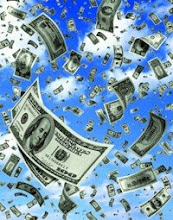
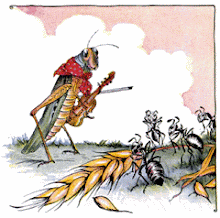













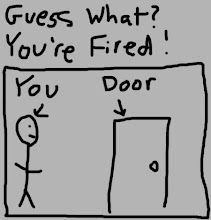
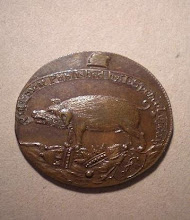









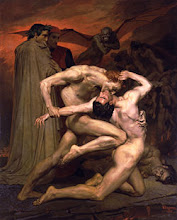_-_Dante_And_Virgil_In_Hell_(1850).jpg)















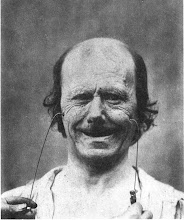
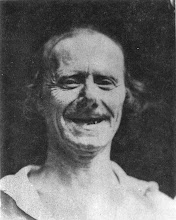


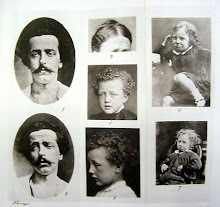





















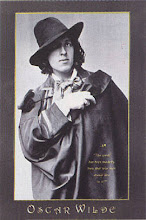
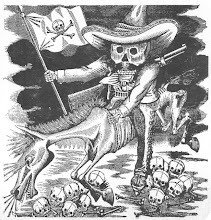












2 comments:
Mr. Stapleton,
I thought you were under the weather as well. ha ha.
"Under the Weather" wow, where does that come from. Aren't we always under the weather or the sky or the roof under the sky?
I was under the weather and therefore did not notice much of anything.
V
I noticed you were gone! Where's my return email?? :)
I'm kidding, of course. A little.
Becky S.
Post a Comment